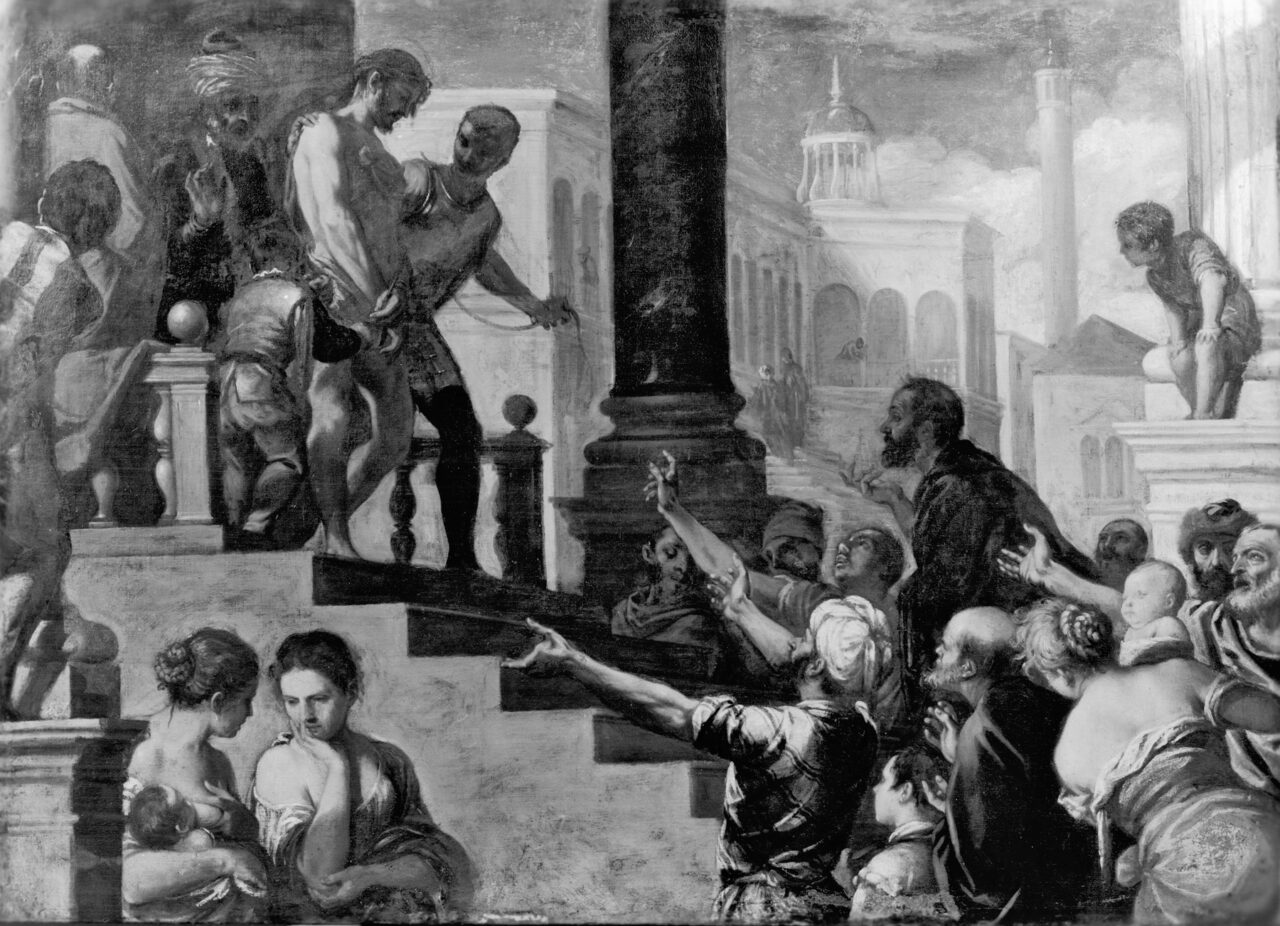Easter’s just around the corner, so it’s time to commence with the several-hour long discourse on the nature of Pontius Pilate. What? You don’t do that on an annual basis? What better time to start the tradition than during your Easter video chats!
Pontius Pilate’s character was the basis for a mold, an archetype which sticks in modern literature. He was the man who found Jesus to be an innocent man, but he loved popular praise too much (or, conversely, he was too weak to fight the will of the mob) to spare Jesus from crucifixion. Over the years, Pontius Pilate’s character was stuffed into this imperfect mold, and he became the stereotype of the politician.
It’s important to note that Pontius Pilate is the voice and hand of Rome. He can levy troops, and he can summon an army for emergencies. Military intervention would not look great on his record, but the Romans would go on to crush Jewish insurrections three times after Jesus’s death. They were far from hesitant to pull the trigger if necessary. Even this is assuming that revolt was inevitable; the mob before Pilate could be angry without burning down Jerusalem. While the sons of Israel had a long history of independence and insurrection, the Jewish leadership in control of those before Pilate had coexisted for decades. Pilate was not beholden to the mob, and certainly not to the mob’s every whim.
Pilate was, however, beholden to Roman politics. As of this passage, Pilate was the governor of a backwater region on Rome’s periphery. Neither wealthy nor vibrant, Judea came under Roman occupation likely within Pilate’s lifetime, so the governorship lacked the prestige of those of other Roman provinces. This was a position one would gain by ticking off several major politicians. There was plenty of room for improvement, such as the governorship of Syria, or possibly a seat in Rome itself. This leads to two possible outcomes. First, Pilate could have ambitions to move upwards and elsewhere. He didn’t need to appease the people; he just needed to make sure that Judea paid its taxes regularly and didn’t set itself on fire. Second, Pontius could have accepted the probability that this was as far as he would likely go. This would not be Pilate the eager-to-please dictator, but rather Pilate the apathetic bureaucrat. Depending on how you read verses regarding Pilate, you can see elements of both.
I’d like to step back now and set the stage for you, given Pilate’s experience as recorded in the gospel. It’s the crack of dawn, or shortly after. The leaders of a group of people who have been known to stir up trouble in the past knock on your door and slam a man down at your feet. You ask what’s wrong with the man. They skirt the question and demand that you specifically execute him, and they demand that he be executed now. You take the man inside, and he is squeaky clean by all standards. Now, why would a bunch of religious zealots want a godly, intensely spiritual man killed? You invoke your knowledge of the region. A few centuries prior, the Macedonian king Antiochus oversaw a religious slight so great that Mattathias and his son Judas Maccabeus managed one of Israel’s most successful insurrections to date, toppling the regional power and partially paving the way for Rome itself. For the Jewish people to demand the death of someone so religiously popular—it’s a setup. It has to be a setup. The Jewish people are hoping to turn this man into a martyr, then to use his death as a spark to ignite an insurrection.
Under this context, Pilate’s actions make sense. He provides the choice between Jesus and Barabbas (whose crimes vary from theft and murder to revolution, and whose name literally means “Son of Father;” my guess is that it’s less important who he was or what he did and more his role as the worst possible person) not just because of tradition but because he wanted to gauge how desperately they wanted to push Jesus through to the electric chair. He humiliated Jesus with flogging and a crown of thorns not just to appease a hypothetical crowd but also because humiliating a martyr is safer than killing a martyr. It is only after a very public submission by the chief priests to Caesar that Pilate agreed to their terms.
We can keep the traditional lessons but apply new ones. Yes, submitting to a mob is always a bad idea. Yes, the praise and affection of man is not the ultimate good. On that same note, you have to keep yourself alert to your surroundings and the backdrop of the elements you control. If Pilate did indeed think that they wanted to make Jesus a martyr, he didn’t read the situation clearly enough. In the eyes of the chief priests, Jesus shook up the religious ranks rather than bolster them. Ignorance can be just as deadly as intention or incompetence.
Poetically, just as Pontius Pilate failed to read the situation in this hypothetical, we often fail to read situations appropriately. We love assigning caricatures because they’re simple to understand, but the world is much more complex. In the Bible particularly, there are nuances on top of nuances, providing for a fascinating read. I hope this helps you appreciate the world in a different light. Make sure to keep watch for the small things this Easter- they might have little surprises inside!
Painting by Pedro Orrente.


Leave a Reply